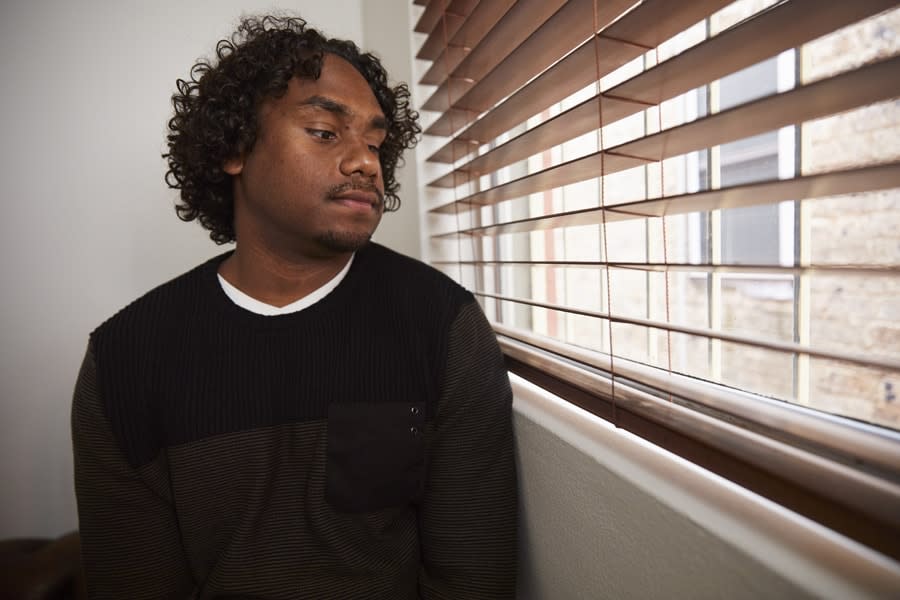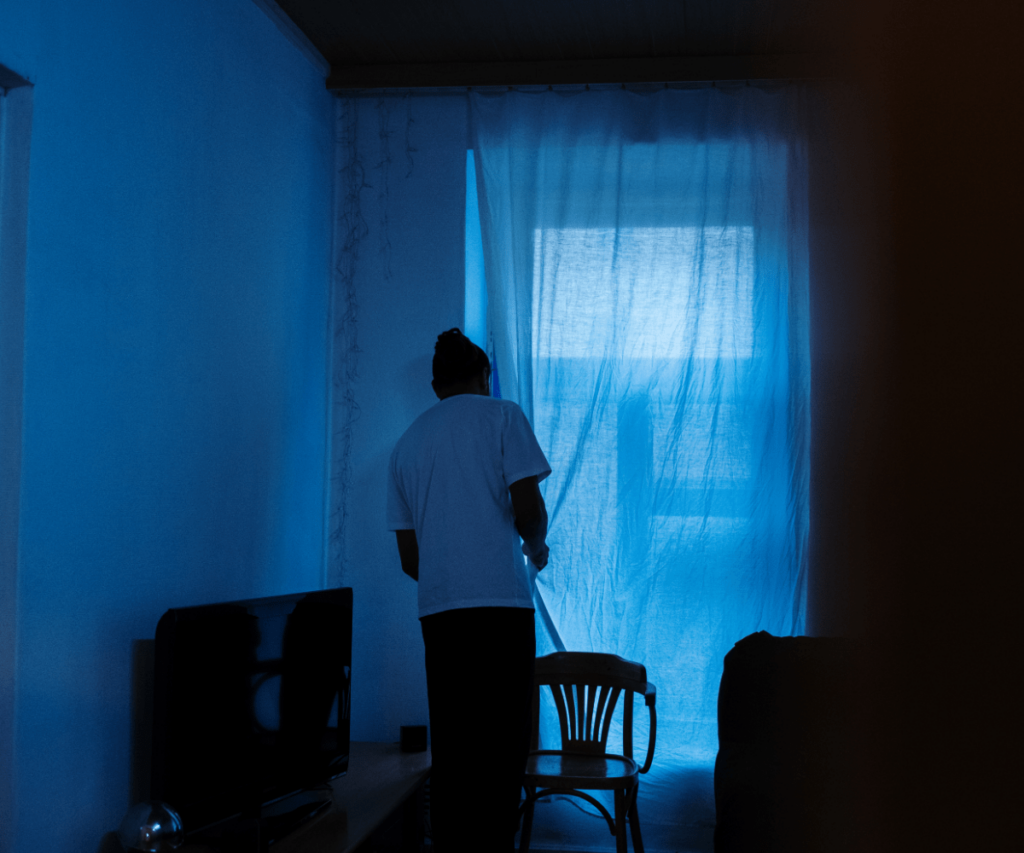
At their most severe, the symptoms of agoraphobia can cause people to become prisoners in their own homes. But can a lack of contact with others also be a risk factor for this condition? In other words, can isolation cause agoraphobia?
What Are the Signs of Agoraphobia?
Agoraphobia is an anxiety disorder that causes people to experience excessive worry or fear when they are in (or thinking about being in) certain places. The term was created in 1871 by Carl Westphal, a German psychiatrist. Westphal combined the Greek word “agora,” which refers to a marketplace or gathering place, with “phobia,” which is another word for fear.
According to the fifth edition of the Diagnostic and Statistical Manual of Mental Disorders (DSM-5), a person who has agoraphobia will have “a marked fear or anxiety” related to at least two of the following:
- Using public transportation or being in a car
- Being in wide open spaces, such as fields or parking lots
- Being in enclosed spaces, such as shops or theaters
- Standing in a line or within a crowd
- Being outside their home by themselves
When someone with agoraphobia is in a situation that triggers their symptoms – or when they even envision themselves in such situations – they may develop a pervasive sense of dread that far exceeds any actual risk of harm.
This dread can sometimes be accompanied by a variety of distressing physical symptoms, such as:
- Heart palpitations
- Chest tightness or pain
- Dizziness or lightheadedness
- Headache
- Tinnitus (ringing in the ears)
- Excessive perspiration
- Hyperventilation (breathing much too quickly)
- Tingling in hands and feet
- Stomach ache
- Nausea
- Depersonalization (the sense of having become detached from your body or mind)
- Derealization (the feeling of begin separated from the world around you)
The physical and emotional disturbances that are characteristic of agoraphobia can cause people to make behavioral or lifestyle changes to avoid places that could trigger their symptoms. This can lead to effects such as:
- Being unable to work or attend school
- Financial problems
- Difficulty forming and maintaining relationships
- Onset or worsening of co-occurring mental health concerns
- Diminished overall quality of life
- Substance abuse and addiction
- Loneliness and isolation
- Suicidal ideation

Can Isolation Cause Agoraphobia?
As we noted in the previous section, agoraphobia can cause isolation. But is the inverse also true? Can isolation cause agoraphobia?
Mental health experts have identified several internal (genetic) and external (environmental) factors that can increase your risk of developing agoraphobia. These factors include:
- Family history of agoraphobia or other anxiety disorders
- Being raised by emotionally distant parents
- Being raised by overly protective parents
- Loss of a parent due to death, divorce, or separation during your childhood
- Having another anxiety disorder
- Developing depression or an eating disorder
- Inheriting certain personality traits, such as an inhibited or neurotic disposition
- Having certain genetic variations
- Being victimized in public, such as by being attacked or assaulted
- Enduring stressful life experiences, such as the loss of your job or the end of an important relationship
Isolation is usually viewed as an effect of agoraphobia, not a cause. However, there are some circumstances where isolation could lead to (or exacerbate) symptoms of agoraphobia.
For example, researchers noted dramatic increases in anxiety and depression after the onset of the COVID-19 pandemic.
Health fears, financial worries, grief, and isolation were among the many contributors to this uptick in mental health challenges across the globe. It doesn’t take a great stretch of the imagination to see how these types of stressors could also put a person at risk of agoraphobia.
People who isolated themselves due to concerns of becoming infected could find it difficult to fully re-engage within their communities, which could lead them to develop agoraphobia or other anxiety disorders.
Can People With Agoraphobia Get Better?
People who have agoraphobia can overcome (or at least learn to better manage) their symptoms when they receive the right type of treatment.
Effective care for agoraphobia can take many forms, depending on how the individual has been affected by the disorder, how long they have been living with it, and if they have any co-occurring mental, behavioral, or medical health concerns.
Depending on these and other important factors, someone who has agoraphobia may benefit from medication, therapy, or a combination of the two.
- The medication component of treatment for agoraphobia usually involves selective serotonin reuptake inhibitors (SSRIs), which are antidepressants, or benzodiazepines, which are anti-anxiety meds.
- From a therapeutic perspective, approaches such as individual psychotherapy, cognitive-behavioral therapy (CBT), exposure therapy, and dialectical behavior therapy (DBT) are among several options that can help people make essential changes in their thought and behavior patterns.
- For those whose struggles with agoraphobia are related to a history of untreated trauma, services such as eye movement desensitization and reprocessing (EMDR) therapy can also be beneficial.
Since the impact of agoraphobia can vary from one person to the next, it is important to find a treatment provider that will assess the full scope of your needs, help you develop achievable short- and long-term goals, then put together a customized plan just for you.
Learn More About Agoraphobia Treatment in Atlanta
Atlanta Integrative Psychiatry offers a dynamic array of innovative services for adults whose lives have been disrupted by agoraphobia and other mental health concerns.
At our agoraphobia treatment center in Atlanta, Georgia, you will work in close collaboration with a team of highly skilled and deeply compassionate professionals. We will encourage you to play an active role in all aspects of your care, with the goal of empowering you to take ownership of your continued recovery. The time you spend with us may be relatively brief, but the services you receive here and the lessons you learn can yield benefits that truly last a lifetime.
For additional information or to schedule a free assessment, please visit our Appointments page or call us today.





